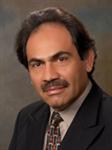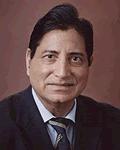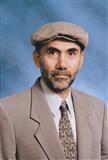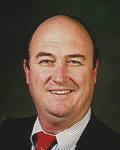What does the Pediatric Neurology
The sphere of pediatric neurology includes diseases of the nervous system in children, occurring before birth, during birth and in the first days after birth, ie diseases of the perinatal period of life of children.
Sections of Pediatric Neurology: Hereditary and infectious, oncological and cardiovascular diseases of the nervous system in children, traumatic lesions of the nervous system, epilepsy.
In addition to the listed organic diseases of the nervous system, pediatric neurologist engages in functional disorders of the nervous system. They arise as a result of violation of equilibrium, motility, strength of the nervous processes. Functional diseases are characterized by reversibility of pathological processes. This group of diseases includes neurosis, various asthenic conditions.
Tasks of the Pediatric Neurology
- Study of ontogeny of the nervous system of the child, Conformity of development nervous and mental functions of age and identification of the causes of delays or distortion of development;
- Study of the etiology, pathogenesis and clinical diseases of the nervous system in children of different age groups, methods of prevention and treatment of diseases of the nervous system, differentiated according to the age of the child;
- Study of changes in the nervous system in various pathological conditions, the role of the nervous system in the pathogenesis of diverse diseases of childhood.
Nervous diseases in Newborns
The most frequently occurring group conditions - the consequences of a lack of oxygen, infection or trauma which occurred during birth or shortly before it. As a rule, the likelihood of perinatal nervous system lesions is high when the serious current pregnancy, when the fetus not gets enough oxygen, or pathological childbirth.
Most CNS damage is developing in premature infants. When the effects of a damaging factor to the brain first appear common symptoms, such as seizures, oppression or excitation and then come to the forefront signs of focal lesions. This means that are switched off the functions per which are responsible the dead areas of the brain. Most often it is a violation of movements - paresis or paralysis. As a result, at a focal lesions of the CNS in the child formed cerebral palsy and epilepsy.
The doctor should assess the history of pregnancy and childbirth, risk factors, to examine the baby and, if necessary, appoint an additional examination. Children with epileptic seizures should as early as possible start to receive a antiepileptic drugs. Children with cerebral palsy have to pass a modern rehabilitation.
Hereditary illnesses of a metabolism manifest themselves right after the birth or during the first year of life. At the child may be epileptic seizures, violation of muscle tone and rough psychomotor retardation. Early and accurate diagnosis of these diseases is important, primarily, to further family planning and calculating the probability of development the disease in other children in the family.
Hydrocephalus - a disease that often makes its debut in the first year of life. This disease is associated with violation of the outflow of cerebrospinal fluid. Hydrocephalus can occur due to congenital malformation of the CNS, inflammation of the meninges, tumors.
Nervous diseases in Older children
The Older children is required show the physician if there is a following violation in the body:
- frequent headaches;
- fainting;
- acute pain penetrating character in the spine;
- speech problems, developmental delay;
- decreased attention, memory;
- nervous tics, as well as any violation to the coordination;
- dizziness, fatigue, drowsiness.
Why is emerged a neurological disease, may be figure out not right away, since the reasons a lot. Aggravating factors may be trauma, almost any infection or virus, genetic predisposition, any poisoning and hypoxia. So neurologists recommend to closely monitor the state of health and behavior of the child, if in the presence of at least one of the risk factors.
In order to treatment of Neurology was the most effective, it is important - and early diagnosis, and Professionalism of experts, and continuous control of the treatment process, and more.
All infants should receive periodic examination by a neurologist, it is often these visits help to diagnose the disease at an early stage.
Regular scheduled examinations-consultation of child neurologist will allow you to be confident in the health of your baby, learn the peculiarities of their development and in a timely manner to identify possible problematic issues. With timely surgical treatment in these children have a chance to develop and live a normal life.
hide
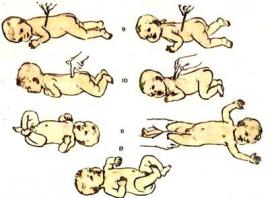 Pediatric Neurology is studying aspects of the functioning of the peripheral and central nervous system in children and clinically is engaged in diagnostics, treatment and prevention of diseases, in varying degrees, associated with damage to the nervous structures.
Pediatric Neurology is studying aspects of the functioning of the peripheral and central nervous system in children and clinically is engaged in diagnostics, treatment and prevention of diseases, in varying degrees, associated with damage to the nervous structures. 
